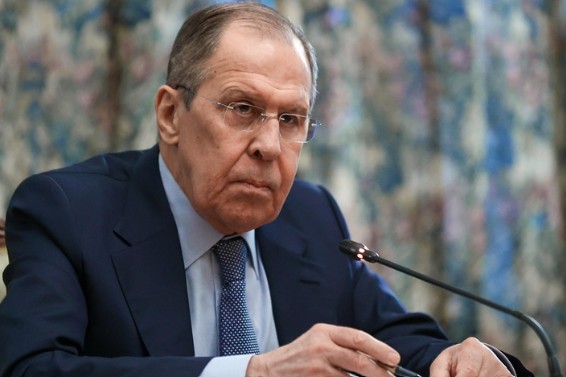Lavrov Rejects European Troops in Ukraine Peace Deal

In a strong rebuff to recent discussions regarding the potential deployment of European peacekeeping troops in Ukraine, Russian Foreign Minister Sergey Lavrov has firmly stated that Moscow will not accept NATO forces, regardless of the flag they operate under. His comments come after high-level talks between U.S. and Russian officials in Saudi Arabia and a subsequent emergency meeting of European leaders focused on military spending and peacekeeping missions in Ukraine.
Lavrov’s Rejection of European Peacekeepers
Lavrov’s remarks underscore Russia’s continuing opposition to any involvement of foreign military forces, particularly from NATO member states, in the peace process concerning Ukraine. He insisted that the presence of European troops, even under a peacekeeping mandate, would be unacceptable to Russia. This sentiment aligns with Moscow’s long-standing position that it views NATO as a direct threat to its security and influence in the region.
“We will not accept any form of NATO involvement in Ukraine, regardless of the label they use for their troops,” Lavrov stated, reiterating that Russia sees any such deployment as an escalation that would undermine the prospects for peace.
His comments have sparked a heated debate within Europe, where different nations are divided on whether peacekeeping forces are necessary for the stabilization of Ukraine, should a peace deal be reached.
Divisions Within Europe on Peacekeeping Troops
The emergency European summit convened to address military spending and the role of peacekeepers in Ukraine revealed significant divisions within the continent. While countries like Britain, Sweden, and Germany have expressed openness to sending troops under a clear peacekeeping mandate, others, such as Poland, have categorically ruled out such deployments. The differing opinions reflect the broader geopolitical rift that has emerged within Europe regarding the war in Ukraine.
Denmark and Sweden, for instance, have stressed the need for U.S. security guarantees before committing to any peacekeeping efforts. Both nations emphasized that the involvement of NATO forces or any significant military commitment would require substantial backing from the United States, which has been a leading voice in the support of Ukraine against Russia’s invasion.
The Road to Peace: A Complex Path Forward
Despite the friction between Moscow and the West, U.S. and Russian officials continue to explore avenues for peace. The recent talks between U.S. Secretary of State Marco Rubio and Russian Foreign Minister Lavrov were seen as an important first step in creating a pathway for negotiations. However, Russia’s stance on NATO and European troops complicates the discussions, making the prospect of a peace deal even more difficult to achieve.
The question of peacekeeping troops is likely to remain a major sticking point. While the U.S. has not yet made any definitive statements on the matter, the involvement of any foreign military force in Ukraine could be seen as a provocative move by Russia, further complicating diplomatic efforts.
Looking Ahead
As diplomatic efforts continue to evolve, the path to peace in Ukraine remains fraught with challenges. The international community will be closely watching the upcoming negotiations, particularly in relation to the role of foreign peacekeepers and the security guarantees required to stabilize the situation.
The rejection of European troops by Russia further highlights the deep divisions and mistrust between Moscow and the West, but it also underscores the importance of finding common ground on security and peacekeeping measures if a lasting resolution is to be achieved.
